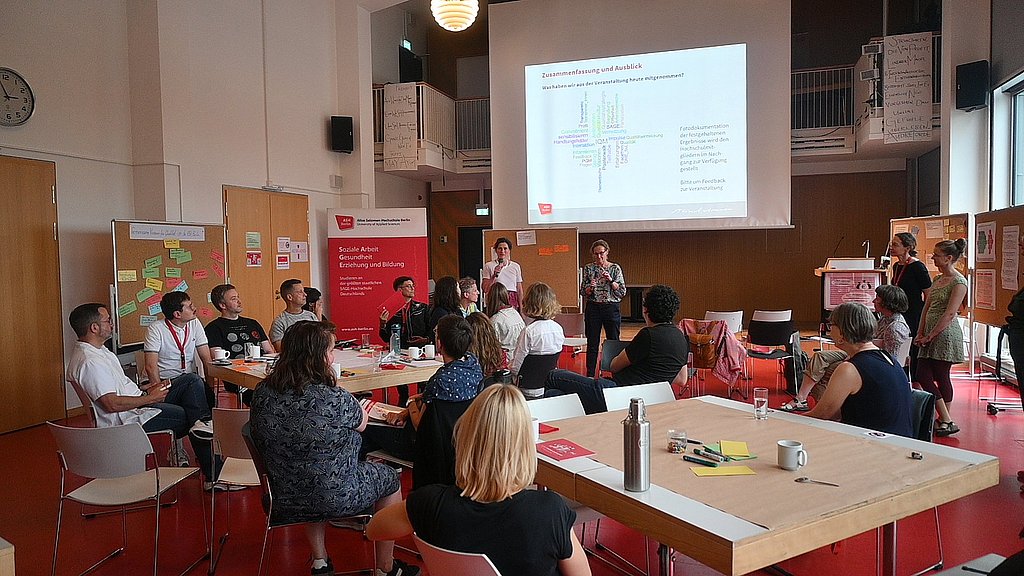In the winter semester 2024/25, based on a decision by the Academic Senate in summer 2023, the Department of Quality Management and Development in Studies and Teaching (QME SuL) and the Process and Quality Management (PQM) staff unit were newly established at ASH Berlin. As a staff unit, PQM is intended to contribute to making existing specialist and empirical knowledge about best practices and ideal processes even more visible, to ensure that it is recorded in a structured manner and reliably put into practice. The QME SuL department focuses on future-oriented quality development and profile building at ASH Berlin in studies and teaching. In close cooperation and with the involvement of all university members, both departments are developing an Integrated Quality Management (IQM) for ASH Berlin.
The development of quality management can only succeed through dialog and the participation of all university members and the inclusion of their diverse perspectives and expertise. In addition, it is essential to make developments in quality management transparent from the outset and to inform university members of all member groups at an early stage so that they can actively contribute their perspectives and expertise to the development of IQM. The IQM kick-off event, which took place on 21.07.2024 in the Audimax of ASH Berlin, was an important first step in this regard.
In the run-up to the event, all university members were able to submit their questions about the IQM via an online padlet so that they could be addressed during the event. In a dialogical welcome by the President, Prof. Dr. Bettina Völter, and the Vice President for Studies, Teaching and Digitalization, Prof. Dr. Anja Voss, they explained the background and the necessity for the establishment of the IQM in view of the current organizational development and growth of the university. Urte Böhm, Head of the QME SuL department, and Dr. Silke Laux, Head of the PQM staff unit, then gave an impulse input on the mission and objectives of Integrated Quality Management (IQM).
The mission of IQM is to strengthen the culture of a more systematically communicating and learning organization and to support stakeholders from all member groups in adopting the perspective of other stakeholders in work processes. The aim is to establish a university-wide quality culture in connection with the strategic and operational levels and to close quality circles.
A poster walk on current work priorities in the work areas of the QME SuL department and the PQM staff unit offered the opportunity to get to know the work areas and employees in a low-threshold manner and to talk to them about their tasks and quality issues. This opportunity was actively used by all those present.
Afterwards, the participants discussed experiences and visions of quality as well as key facets and fields of action of quality development at two interactive themed tables. The lively and constructive discussions highlighted a pronounced interest in the topic of quality development and a great need to strengthen positive aspects and to make visible, bundle and expand what already exists, as well as to take experience and expert knowledge into account. Transparency - standards - structure - clearly regulated, easy-to-find responsibilities and processes - consistency - traceability - professionalization - service orientation proved to be recurring themes and concerns that were mentioned in connection with quality visions for ASH Berlin. In conjunction with selected measures and principles (e.g. onboarding, complaint management, design of curricula and learning spaces, student-centeredness and student participation), these can contribute to increased satisfaction among university members and to closing quality loops. The importance of digitalization as an urgently needed building block for quality development at the university was emphasized. It was also made clear that the establishment of a university-wide quality culture requires commitment and the assumption of responsibility by stakeholders across all fields of action at central and decentralized university level.



